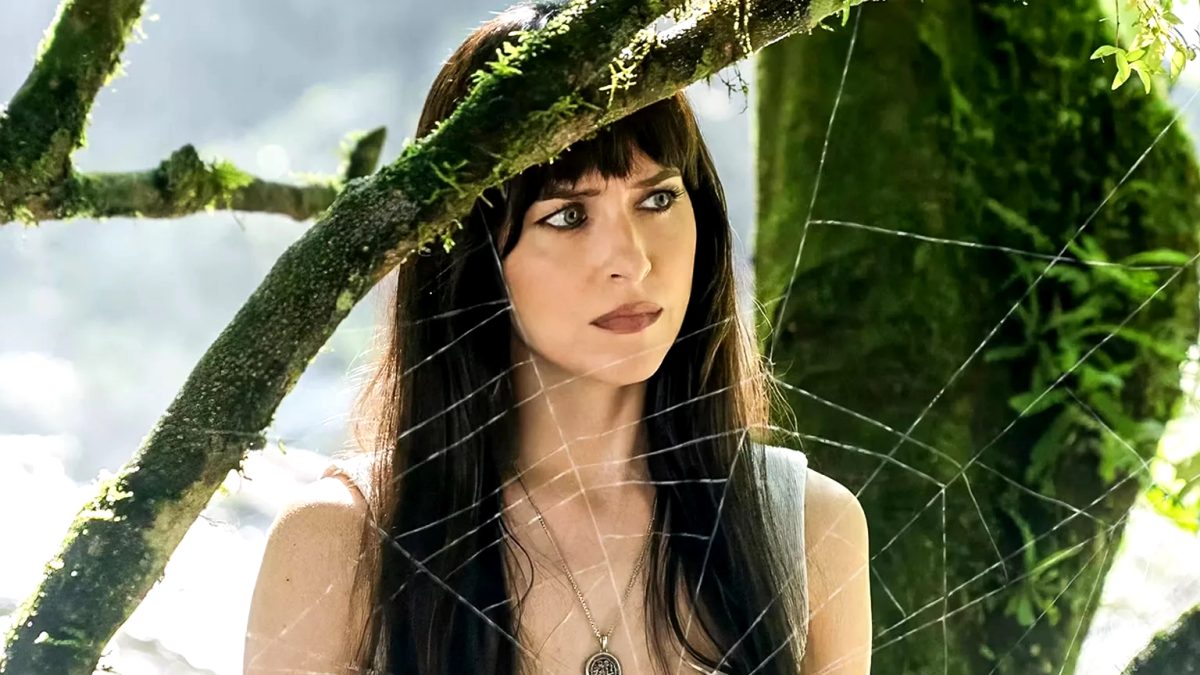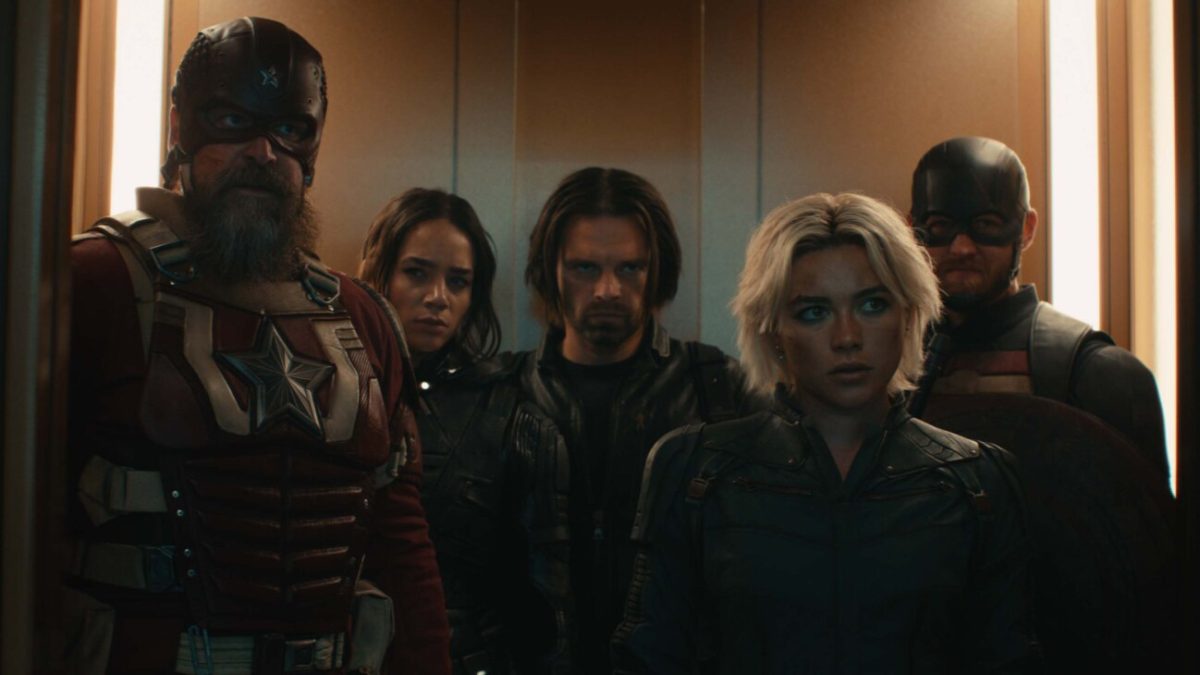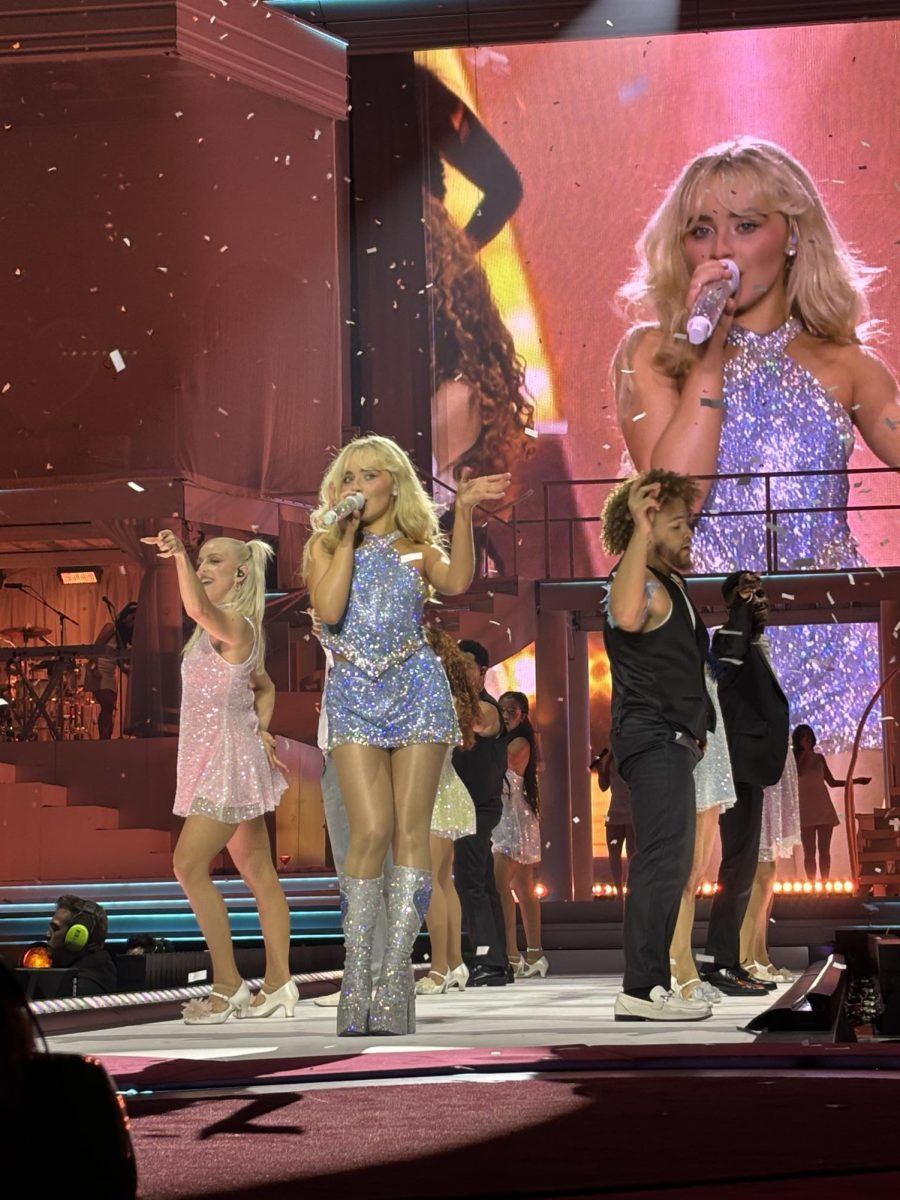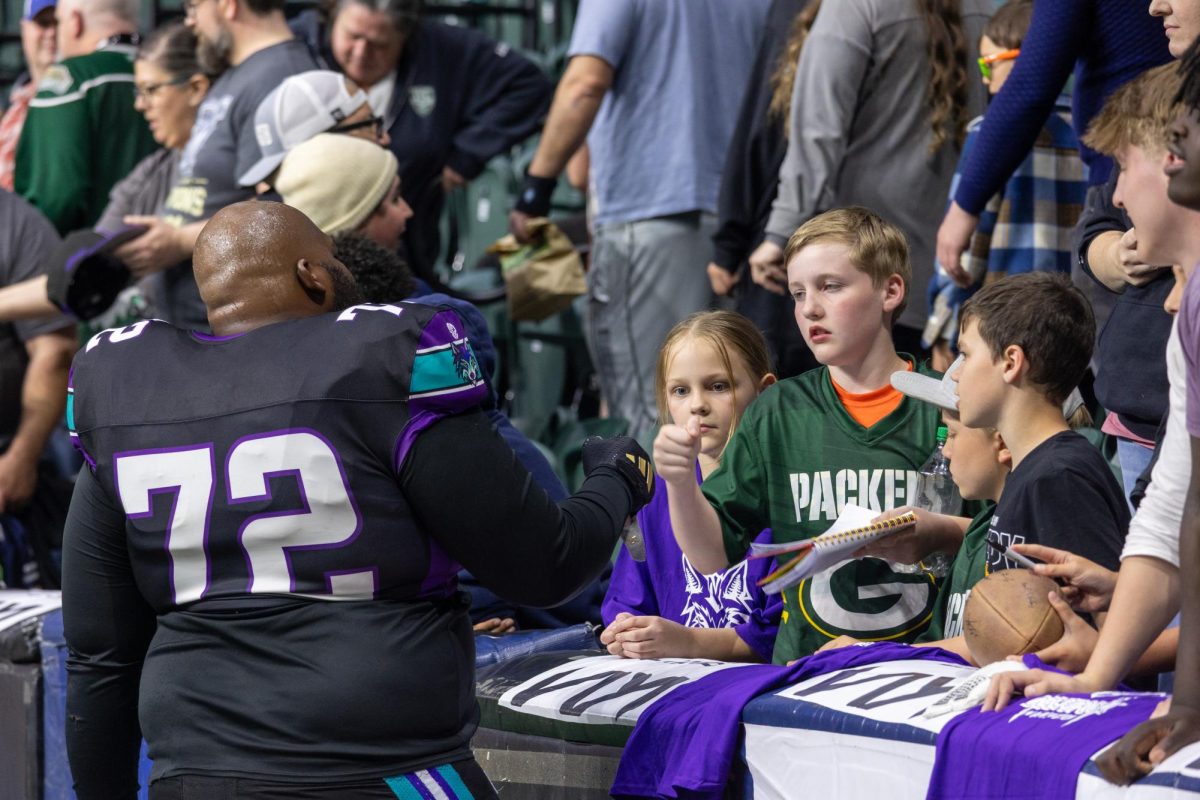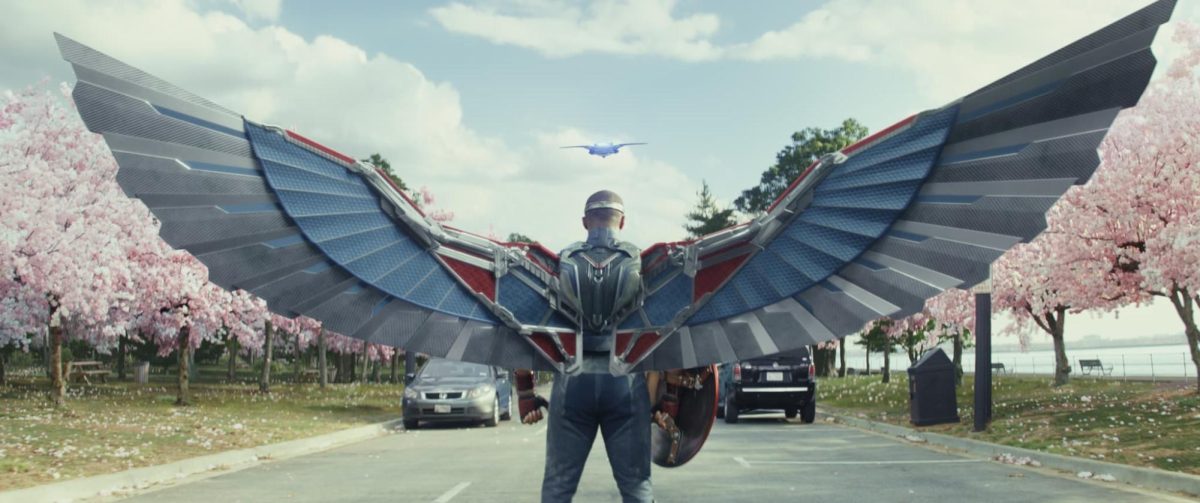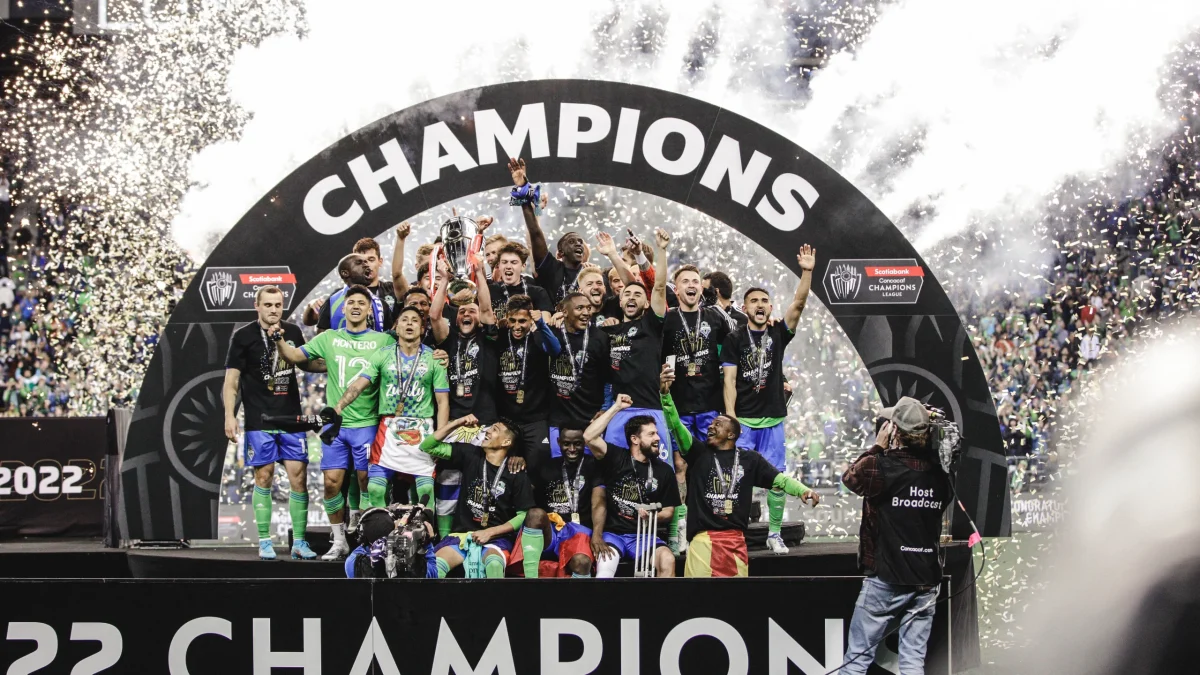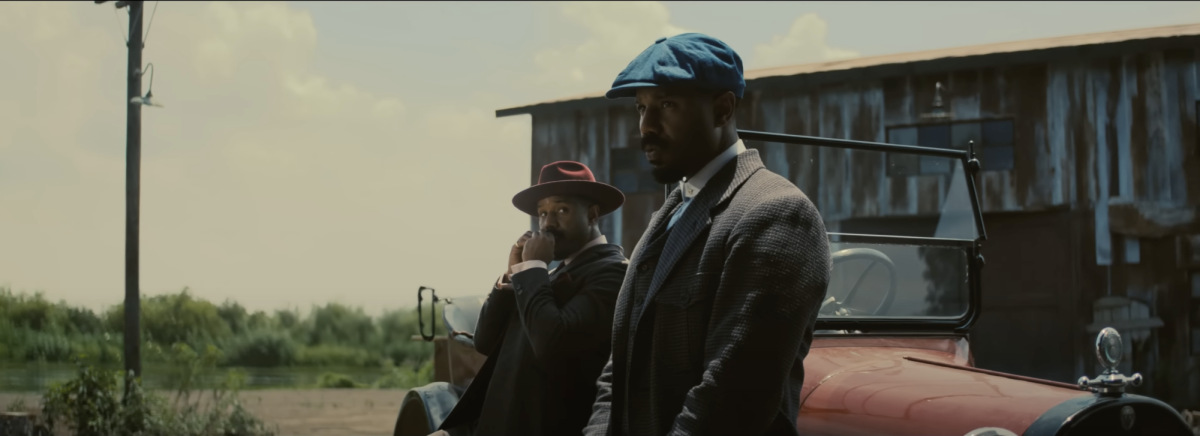When a car is on fire on the side of the road, if at a safe distance, people tend to slow down and watch it burn. It can be assumed that this same phenomenon is what allowed Madame Web to turn a $20 million profit.
The Marvel-associated Sony Productions film follows Cassie Webb (Dakota Johnson), a 30-year-old New York City fire department paramedic with an attitude problem.
The opening scene flashes back to Cassie’s mother, Constance (Kerry Bishé), a scientist, searching for a spider that “supercharges cellular structure” (whatever that means) in the deep jungles of Peru with her co-researcher, Ezekiel (Tahar Rahim).
From the get-go, the camerawork feels distinctly unserious, zooming in and out and shaking with no coherent pattern or reason for doing so. Paired with soap opera-esque deliveries of a cliché-riddled script, the film is not off to a promising start.
The set-up: Constance finds the spider. Ezekiel double crosses her and steals the spider, then shoots her. By the way, she’s about nine months pregnant. Ezekiel runs off with the spider. Then a colony of mystical spider-people called the Las Aranãs (which creatively translates to “the spiders”) rappel down from the trees and take her to a cave with a shimmering blue pool, where they have one of the super spiders bite her, and then she gives birth. The leader of the spider people tells Constance that the baby will live and will one day “come back when she needs answers.” Constance dies off-screen.
Jumping forward in time, it’s 2003, and Cassie Webb is riding in an ambulance, sirens blaring, with her partner Ben (Adam Scott). Ben asks her something about the injured person in the back of the ambulance, which is followed by a dramatic line from Cassie that highlights the mediocrity of the script: “She’s not going room-temp on my watch.”
Later, Cassie sifts through a box of old records of her time spent in foster care, a plot device used to illustrate her backstory. Among the records are old journals and photos that belonged to Constance. Cassie sighs and says, “I hope the spiders were worth it, Mom.”
I am generally opposed to inserting myself in stories, even reviews. But at this point, I don’t know how to properly phrase how unserious this movie is without doing so. I was in tears at the petulance of the delivery of that last line. It almost made me love the movie. Sometimes a movie is so bad, it’s good, and it almost got there with that line.
Almost.
Anyway, Cassie tries to save a man from an overturned car and winds up falling off what appears to be the Brooklyn Bridge into the East River. A confusing CGI montage ensues, and when Cassie gets back on dry land, she’s a confused clairvoyant who just wants to “go home and watch Idol.”
Minute to minute, the plot, the script, everything about this movie is amazing in its outright absurdity. I could critique each scene and enjoy doing it. But for the sake of concision, I will highlight only the most delightfully absurd decisions made by the people who brought this film to its doomed fruition.
Cassie holds a can of Pepsi in an overt display of product placement. This will matter later.
There’s a fire in a fireworks warehouse that ends up causing the death of the fire chief, which adds to Cassie’s dramatic backstory. Again, this will matter later.
Ezekiel (remember? Cassie’s mom’s co-researcher who double-crossed her and stole the spider?) is an ultra-rich stereotypical supervillain living in a penthouse somewhere. He’s been having bad dreams that he’s going to be killed by three teenage superheroes. At some point he let the spider bite him and now he has powers, including the ability to poison anyone he touches to varying degrees, from paralysis to death.
In what may be the most amateur mishap of the film’s production, some tragic error destroyed the original audio for Ezekiel’s lines. That, or there was a script change at some point in post-production. All of his lines were re-dubbed. Not only does his mouth often not line up with what he is saying, but sometimes his face is shown and he is speaking but his mouth is not moving at all. Not only that, but the re-dub paid no attention to the directional component of the audio. So while he is shown, say, standing in the corner of the room, his lines sound as though he’s speaking directly in the audience’s ear.
Again, this movie made $20 million in profit. Perhaps that isn’t a lot in the grand scheme of film (it’s actually really, really bad) but based on the awful re-dub alone, it’s a troubling example of the overall decrease in quality of American cinema.
Moving forward in this hot mess of a movie, Cassie goes to Ben’s sister’s baby shower and brings up her mother dying in childbirth in a group party game, effectively ruining any affection the audience has for her.
Ezekiel uses stolen surveillance systems to hunt down the three teenagers he believes are going to kill him in the future. Cassie finds the girls (because, remember, she’s clairvoyant now) and hides them in the woods.
The four women make quite the archetypal team. Cassie is the older, not-so-wise grump, then there’s the sweet, dumb girl who can fight, Julia (Sydney Sweeny), the rich rebel Mattie (Celeste O’Connor), and the troubled genius Anya (Isabela Merced). Cassie basically becomes Bosley to three Gen-Z angels. Too old a reference? Think Haymich from The Hunger Games, but with dumber lines.
Cassie goes back to Peru to get the answers she needs, abandoning the girls with Ben, who accepts this even though he has no idea what’s going on and hasn’t been in a single scene for over thirty minutes.
In the film’s climax, Ezekiel has caught up to the rag-tag team and they’re trying to get away. They run through yet another fireworks warehouse, lighting them off as they run to distract him.
Seriously, how many fireworks warehouses are we as an audience expected to believe there are in Manhattan?
Yada, yada, Cassie knocks Ezekiel off of a rooftop, proving that he was never going to die by the girls (who still aren’t superheroes) and she was his ultimate destruction in the end. The fall doesn’t kill him, though.
What does?
The “P” from a giant Pepsi sign, of course.
In the end, due to Ezekiel touching her for just long enough, Cassie becomes a blind paraplegic who somehow became a mogul and bankrolls an apartment for the three minors to live in with her, effectively adopting them, which totally makes sense from a legal perspective.
The girls still aren’t superheroes, but a montage at the end suggests they will be in a coming sequel.
God, I hope not.
One microscopic gold star: Madame Web passes the Bechdel test with flying colors. If only that were enough.
A few of the film’s leads have publicly criticized it, admitting they may have made a bad call in joining the cast. In a recent Saturday Night Live monologue, Hollywood’s girl-of-the moment Sydney Sweeney (who played Julia), joked, “You definitely did not see me in Madame Web.”
In an interview with Bustle, Madame Web herself, Dakota Johnson, said, “it’s not nice to be a part of something that’s ripped to shreds, but I can’t say I don’t understand.”
If this film had truly embraced the absurdity much of the opening scenes promised, if it had really leaned in to being absolutely atrocious and the producers had the spidey sense to throw up their webs and call it a parody, it could have been one of those movies that’s so bad it’s good.
Instead, they stuck to their water guns and shot for what seems to be a superhero movie meant to be taken seriously–something it simply cannot be.
Personally, I had a better time watching 2003’s Leprechaun: Back 2 tha Hood, and that’s saying something. And I had a much better time writing this article.

